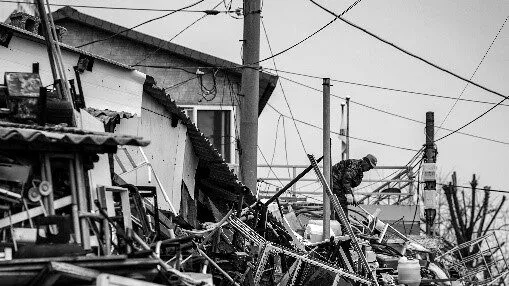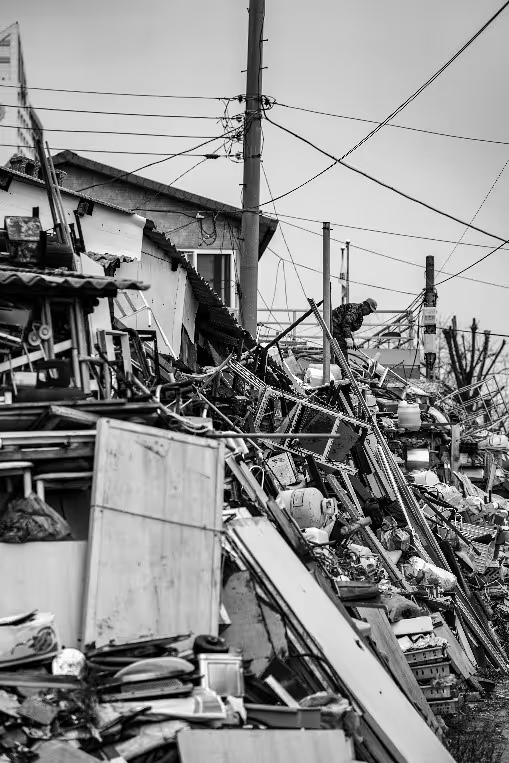Preparing actionable data for inclusive shelter (PADIS)

Project overview
PADIS will build organisational capacity on use of disability data in humanitarian shelter response in Asia. This will be via a collaborative and guided design process with country shelter cluster and organisation of persons with disabilities (OPD) representatives.
Project solution
This project offers [specific solution or intervention] to tackle [challenge]. By implementing [strategies, tools, or innovations], the project aims to achieve [desired outcomes]. The approach is designed to [specific actions or methods] to bring about meaningful change in [community, region, or issue area].
Expected outcomes
This project aims to achieve [specific outcomes], such as [measurable results, improvements, or changes]. The expected impact includes [benefits to the target community, advancements in research or innovation, or long-term effects]. By the end of the project, we anticipate [specific changes or milestones] that will contribute to [broader goals or objectives].
Preparing actionable data for inclusive shelter (PADIS) was previously funded by the HIF in 2021 (Phase 1). Phase 2 commenced in 2023 as part of the Data Driven Inclusion Advancing Innovations Grant.
What humanitarian need was addressed?
In Phase 1 we drew on earlier work that identified slow uptake and use of disability data in humanitarian action as a constraint to disability inclusion. Recognising most work on disability data in humanitarian action has been sector agnostic we focused attention on shelter response. This identified persisting knowledge gaps within the sector as well as unrealistic expectations of what disability data collection tools, such as the Washington Group questions, can do and inform. Phase 2 progressed this work by delivering tailored disability data solutions based on in-country shelter response priorities and modalities.
How did the innovative solution impact humanitarian practice?
Phase 1 used an iterative Delphi process to build consensus on issues and priorities relating to disability data in humanitarian shelter response. Delphi participants were experts from the Global Shelter Cluster.
Phase 2 used structured workshops (‘implementation’ stage) to deliver, test, and refine learning content to build capacity on disability data. This included collaborative learning between shelter practitioners and OPDs to design country specific data solutions (‘learning’ stage).
PADIS 2 received recognition in national policy consultations and regional forums, showing potential for wider adoption.
What progress was achieved and what were the key learnings?
Findings from the Delphi process identified the need to shift attention from the global level, where awareness of the importance of disability inclusion is growing, to national levels where there is greater influence to deliver day-to-day change. It was also clear from practitioners that there should be a shift away from written guidance.
In response, Phase 2 was delivered via a national workshop in Indonesia to test and refine training materials followed by a regional workshop held in the Philippines. The regional workshop included shelter and OPD participants from Bangladesh, Indonesia, Nepal and the Philippines.
Although all humanitarians had some experience of disability inclusion and all OPDs had first-hand experience of response, there were notable gaps in understandings. Having dedicated time to work collaboratively on disability data was highly valued by participants.
Since the workshops, collaborations and information sharing have been ongoing.
Future potential and lessons for innovation
Key lessons included the value of in-person engagement and the critical and ongoing need to bridge knowledge gaps between OPDs and humanitarian actors. Also, the importance of promoting disability data use that supports decision-making rather than data being collected as a formality.
Future opportunities lie in cross-sector partnerships, creating sustained communities of practice, and mobilising funding to scale the model—particularly as global interest in disability-inclusive responses grows.
The general approach can be replicated in other regions, applied to other sectors like WASH or protection, and expanded through a Training of Trainers model to support broader adoption.
Project delivery & updates
Stay up to date with the latest developments from this project. Here, you will find details on what has been delivered, resources created, and regular updates as the project progresses. Access key documents, reports, and other materials to see how the project is making an impact.
